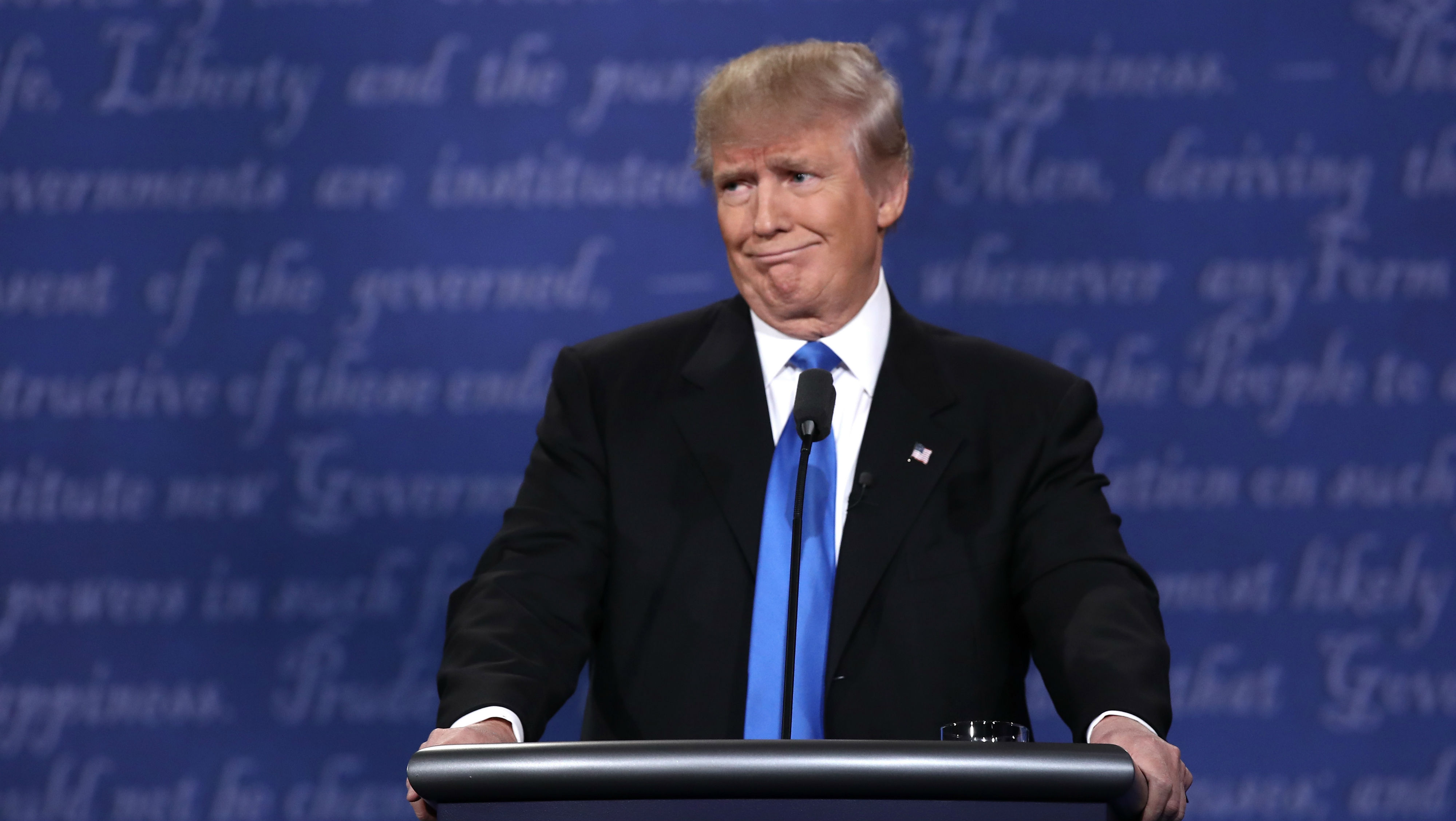US election 2016: What happens if Donald Trump loses on 8 November?
From what the businessman could do to a possible split in the GOP, the analysts' guide to the future

A free daily email with the biggest news stories of the day – and the best features from TheWeek.com
You are now subscribed
Your newsletter sign-up was successful
"If we don't win this election, I don't know what I'm going to do," Republican presidential hopeful Donald Trump told supporters at a Florida rally this week.
The businessman is down in the polls following the release of a video in which he made lewd comments of women and the claims this week that he sexually harassed several.
However, that doesn't mean the former reality TV star has no plans if he loses on 8 November.
The Week
Escape your echo chamber. Get the facts behind the news, plus analysis from multiple perspectives.

Sign up for The Week's Free Newsletters
From our morning news briefing to a weekly Good News Newsletter, get the best of The Week delivered directly to your inbox.
From our morning news briefing to a weekly Good News Newsletter, get the best of The Week delivered directly to your inbox.
What is Trump likely to do?
Journalism could be calling. The Independent's David Usborne says Trump could leverage the anti-establishment support he has won during his campaign to launch a new conservative media empire if he loses. He could possibly team up with Stephen Bannon, his campaign chief and the former executive chairman of the right-wing Breitbart news and opinion website.
What about his supporters?
The Atlantic website has identified four features of Trump's core constituency: its members did not go to college; they believe they lack a political voice; they want to wage an "interior war" against those they deem outsiders, and they live in parts of the US with racial resentment.
A free daily email with the biggest news stories of the day – and the best features from TheWeek.com
Ben Domenech, the founder of The Federalist blog, predicts Trumpists who actually belong to the GOP will abandon it "because they believe it was insufficiently pro-Trump".
Over at CNBC, Jake Novak says the businessman's supporters will never forgive Republican leaders and the news media.
And the Republican Party?
Donald Trump has divided the party like no other politician in recent history. Several Republicans fear that if Hillary Clinton triumphs, their party could be, in the worlds of Sahil Kapur of Bloomberg Politics, "on the cusp of a cataclysmic fracture".
Stuart Stevens, the chief strategist for Mitt Romney's failed presidential bid in 2012, says: "I think there's a Trump party and there's a Republican Party. I have a lot of problems squaring the two."
Forging unity could be impossible "if hordes of Trump voters blame party leaders for the defeat of a man who electrified the grass roots supporters in a way no other Republican has managed in decades", writes Stephen Collinson for CNN.
Blogger Domenech disagrees, saying the reality is that nothing will change. Elected Republicans will blame right-wingers and work to preserve their own levers of power, while activists "will blame elected Republicans and party leadership". Trump-backers, meanwhile, will condemn those opposed him and blame the party for not supporting him.
What will happen to Congress?
One consequence of a big loss by Trump is that it could wipe out the Republican majority in the House of Representatives. The possibility of a Clinton presidency and a Democratic Congress is remote, but it would have a huge impact on industries such as finance, pharmaceuticals and energy - not to mention high-income taxpayers, says the Wall Street Journal.
-
 How the FCC’s ‘equal time’ rule works
How the FCC’s ‘equal time’ rule worksIn the Spotlight The law is at the heart of the Colbert-CBS conflict
-
 What is the endgame in the DHS shutdown?
What is the endgame in the DHS shutdown?Today’s Big Question Democrats want to rein in ICE’s immigration crackdown
-
 ‘Poor time management isn’t just an inconvenience’
‘Poor time management isn’t just an inconvenience’Instant Opinion Opinion, comment and editorials of the day
-
 How corrupt is the UK?
How corrupt is the UK?The Explainer Decline in standards ‘risks becoming a defining feature of our political culture’ as Britain falls to lowest ever score on global index
-
 The high street: Britain’s next political battleground?
The high street: Britain’s next political battleground?In the Spotlight Mass closure of shops and influx of organised crime are fuelling voter anger, and offer an opening for Reform UK
-
 Is a Reform-Tory pact becoming more likely?
Is a Reform-Tory pact becoming more likely?Today’s Big Question Nigel Farage’s party is ahead in the polls but still falls well short of a Commons majority, while Conservatives are still losing MPs to Reform
-
 Taking the low road: why the SNP is still standing strong
Taking the low road: why the SNP is still standing strongTalking Point Party is on track for a fifth consecutive victory in May’s Holyrood election, despite controversies and plummeting support
-
 What difference will the 'historic' UK-Germany treaty make?
What difference will the 'historic' UK-Germany treaty make?Today's Big Question Europe's two biggest economies sign first treaty since WWII, underscoring 'triangle alliance' with France amid growing Russian threat and US distance
-
 Is the G7 still relevant?
Is the G7 still relevant?Talking Point Donald Trump's early departure cast a shadow over this week's meeting of the world's major democracies
-
 Angela Rayner: Labour's next leader?
Angela Rayner: Labour's next leader?Today's Big Question A leaked memo has sparked speculation that the deputy PM is positioning herself as the left-of-centre alternative to Keir Starmer
-
 Is Starmer's plan to send migrants overseas Rwanda 2.0?
Is Starmer's plan to send migrants overseas Rwanda 2.0?Today's Big Question Failed asylum seekers could be removed to Balkan nations under new government plans